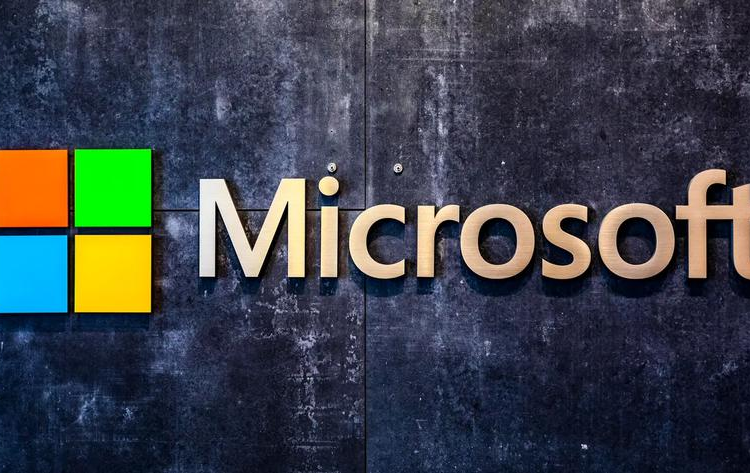VK, Russia’s internet juggernaut, is a fascinating case study in ambition clashing with financial reality. Known for its flagship platform VKontakte—often dubbed “Russia’s Facebook”—VK has long been a cornerstone of the country’s digital landscape. But as we roll into 2025, their 2024 financial performance has everyone talking, and not always for the right reasons. Let’s break it down.
Revenue: A Bright Spot in the Storm
In 2024, VK raked in 147.6 billion roubles ($1.75 billion), marking an impressive 23% increase from the previous year. This growth is no fluke—it’s powered by a 20% surge in online advertising revenue, a testament to VK’s ability to monetize its massive audience. Reuters With digital advertising becoming the lifeblood of tech companies worldwide, VK’s tapped into a lucrative vein. Brands are flocking to platforms where millions congregate daily, and VK’s got the numbers to back it up—more on that in a bit.
This revenue spike isn’t just about ads, though. VK’s ecosystem spans social networking, messaging, gaming, and even music streaming, creating multiple streams of income. Think of it like a digital Swiss Army knife—versatile and packed with tools to keep users hooked. The company’s been smart about diversifying its offerings, from VKontakte’s group chats to its music app rivaling Spotify in Russia. But while the top line looks shiny, the bottom line is where the plot thickens.
Losses: A Triple-Digit Nightmare
Here’s the gut punch: VK’s net loss ballooned to 94.9 billion roubles ($1.13 billion) in 2024, nearly tripling from 34.3 billion the year prior. The Moscow Times That’s not a typo—tripling losses in a single year is the kind of stat that makes investors sweat and analysts grab their calculators. So, what’s going on? VK’s spending like a tech titan in the making, but the returns aren’t keeping pace.
The culprits are clear: massive investments in content creators, original programming, and technological infrastructure. VK’s betting big on becoming a one-stop entertainment hub, pumping cash into exclusive shows, influencer partnerships, and server upgrades to handle its growing traffic. It’s a strategy that mirrors what giants like Netflix and YouTube have done—spend heavily now, reap profits later. But unlike those global behemoths, VK’s still deep in the red, and the clock’s ticking. The question is whether this spending spree is a visionary move or a reckless plunge into financial chaos.
User Base: The Crown Jewel
Let’s talk about VK’s ace in the hole: 77 million daily active users. That’s not just a number—it’s a small nation logging into VK’s platforms every day, from VKontakte to its video and music services. Reuters For context, that’s more daily users than the populations of countries like Greece or Sweden combined. This isn’t a niche app—it’s a cultural force in Russia, where surpass expectationsit’s woven into the fabric of social life, from group chats organizing local meetups to viral memes that define online trends.
Keeping those users engaged, though, is a double-edged sword. It’s driving that sweet ad revenue, sure, but it’s also fueling those jaw-dropping losses. VK’s pouring resources into making its platforms stickier—think better recommendation algorithms, faster load times, and content that keeps people scrolling late into the night. It’s a high-stakes game: grow the audience now, figure out profitability later. But with losses mounting, can they afford to keep playing?
The Debt Dilemma: A Mountain to Climb
If VK’s losses are the storm, its debt is the thunder rumbling overhead. By December 31, 2024, VK’s debt-to-equity ratio hit a staggering 6.44. Reuters Let’s unpack that: for every rouble of equity VK owns, it owes 6.44 roubles in debt. Compare that to a healthy benchmark—most stable companies aim for a ratio below 2—and you’ll see why alarm bells are ringing. Investopedia on Debt-to-Equity Ratio
Why Debt Matters
High debt isn’t just a number on a spreadsheet—it’s a chokehold on flexibility. VK’s borrowed heavily to fund its aggressive growth spurt, but that leverage comes with serious risks. Interest payments gobble up cash flow, lenders get jittery about repayment, and new borrowing becomes either pricier or outright impossible. Add Russia’s volatile economic climate—think Western sanctions, rouble fluctuations, and inflation—and VK’s walking a financial tightrope with no safety net. One misstep, and the fall could be brutal.
This debt load also puts VK in a tough spot strategically. Every rouble spent on interest is a rouble not spent on innovation or marketing. It’s like running a marathon with weights strapped to your legs—possible, but exhausting. And with competitors like YouTube circling, VK can’t afford to slow down.
The Share Issue Lifeline
Enter VK’s big play: a plan to raise up to 115 billion roubles ($1.36 billion) through a new share issue. Reuters This isn’t another loan piling on more debt—it’s selling ownership stakes to bring in fresh cash and chip away at that towering debt mountain. It’s a classic move for companies in a pinch: dilute existing shareholders a bit to stabilize the ship. If successful, it could slash that 6.44 ratio and give VK breathing room to keep chasing its ambitious goals.
But here’s the catch: investors aren’t lining up with open wallets just yet. Tripled losses and a shaky debt profile make VK a gamble, not a sure bet. The share issue’s success hinges on VK convincing the market it’s a diamond in the rough, not a sinking ship. They’ll need to pitch a compelling story—highlighting that 23% revenue growth, the 77 million users, and a vision for dominance. Can they pull it off? That’s the million-rouble question, and the answer’s still up in the air.
Partnerships: A Backup Plan?
VK’s also dropping hints about partnering up for future projects. Details are scarce—think cryptic press release vibes—but the idea’s intriguing. Teaming up with other firms could spread the financial load, especially for big-ticket items like content production or tech overhauls. Imagine a telecom giant like MTS or a state-backed fund stepping in—suddenly, VK’s not footing the bill alone. It’s a savvy pivot that could ease the debt pressure without relying solely on the share issue. But until names, numbers, and firm commitments drop, it’s just a tantalizing “what if” floating in the ether.
The Strategy: Betting Big on Content
VK’s not content (pun intended) with being just a social network—they want to be Russia’s digital entertainment kingpin. Here’s how they’re playing the game, and why it’s both brilliant and terrifying.
Original Content: The Netflix Play
VK’s pumping cash into original shows, creator-driven videos, and exclusive content. Think scripted series about Russian life, live-streamed gaming events, and influencer-led projects tailored to local tastes. It’s a page straight from Netflix’s playbook: hook users with stuff they can’t get elsewhere. VKontakte’s already a hub for groups and communities—add killer content, and you’ve got a recipe for keeping users glued to the screen.
Take their video platform, for example. VK’s pushing hard to rival YouTube with a mix of short-form clips—think TikTok-style snippets—and longer exclusives like mini-series or documentaries. They’ve got creators churning out viral hits, but it’s not cheap. Production costs for a single high-quality show can run into millions of roubles, talent fees add up, and marketing to cut through the noise isn’t free. VK’s betting that this content will drive engagement and, eventually, more ad dollars. It’s a long game, and they’re all in.
Community: The Secret Sauce
Unlike YouTube’s sprawling, global chaos, VKontakte thrives on tight-knit communities—think fan clubs for Russian pop stars, hobby groups for car enthusiasts, and local chats for Moscow students. VK’s leaning hard into this, making it the heart of their ecosystem. VKontakte Official Site Features like group messaging, event planning tools, and an integrated music player keep users coming back. It’s less about passive scrolling and more about active connection, which advertisers love—engaged users are gold.
This community focus sets VK apart. Where Facebook’s become a newsfeed slog and YouTube’s a content firehose, VKontakte feels like a digital neighborhood. It’s a strength VK’s doubling down on, integrating content into these groups to boost retention. Imagine a car group streaming an exclusive repair tutorial—suddenly, users aren’t just chatting; they’re watching, too.
The Costly Catch
Here’s the rub: this strategy’s a money pit. Building servers to handle 77 million daily users, paying creators a living wage, and producing high-quality content isn’t cheap. VK’s banking on a long-term payoff—grow the user base, boost ad revenue, and eventually turn a profit. It’s a gamble that’s worked for others (hello, Spotify’s podcast pivot), but VK’s deeper in debt and shorter on cash than those success stories. The numbers tell the tale: 94.9 billion roubles in losses against 147.6 billion in revenue means they’re spending nearly as much as they’re making—and then some.
VK vs. The Giants: Russia’s Tech Champion
VK isn’t just a company—it’s Russia’s tech poster child, squaring off against global heavyweights in a fight for digital supremacy.
The Competition
VK’s staring down YouTube, Facebook, and TikTok—titans with billions in revenue and worldwide dominance. BBC on Russia’s Tech Ambitions VK’s got a home-field advantage—state support and a fiercely loyal Russian audience—but the gap’s wide. YouTube’s got an endless library of content and bottomless cash reserves; Facebook’s got scale; TikTok’s got the youth vote. VK? They’re scrappy, but they’re David in a ring full of Goliaths.
The Local Edge
VK’s weapon is localization, and they’re wielding it like a pro. They’re crafting content and features specifically for Russian users—think Cyrillic-first interfaces, shows about Siberian winters, and community tools Western platforms don’t bother with. It’s a niche play, but it’s smart. Russians don’t just want a platform—they want one that gets them, from the slang in the comments to the music on the playlist. VK’s betting that this cultural resonance will keep users from jumping ship.
Geopolitical Stakes
Russia’s tech push isn’t just business—it’s survival. Western sanctions have squeezed access to foreign platforms, making homegrown champs like VK critical. Reuters on Sanctions Impact The Kremlin’s poured resources into VK, seeing it as a bulwark against U.S. tech dominance. If VK thrives, it’s a win for Russia’s digital independence—a signal they can build their own internet empire. If it falters, the Kremlin’s tech dreams take a hit, and Russia’s left leaning on foreign giants it can’t control.
The Share Issue Debate: Hope or Hype?
VK’s 115-billion-rouble share issue is splitting opinions like a hot Reddit thread. Let’s dive into the bulls, the bears, and the messy middle.
The Bull Case
- Growth Momentum: That 23% revenue jump shows VK’s hitting its stride. Online ads are booming, and 77 million users are a marketer’s dream come true.
- Debt Relief: The share issue could cut that 6.44 ratio, making VK less of a risk and more of a buy. Less debt, more flexibility—it’s a solid pitch.
- Long Game: Content investments take time to mature—VK’s playing for dominance, not quick wins. Think Amazon’s early years: losses now, empire later.
The Bear Case
- Loss Spiral: Tripling losses to 94.9 billion roubles is a disaster. The Moscow Times on Share Drop No sugarcoating it—that’s a black hole.
- Investor Fear: A 6.44 debt ratio screams “run”—who’s buying into that kind of leverage in a shaky economy?
- Execution Risk: If the share issue flops or costs keep climbing unchecked, VK’s toast. They’ve got no margin for error.
The Middle Ground
It’s a coin toss. VK’s got real strengths—revenue, users, a bold vision—but the numbers are brutal. They need to nail this share issue, convince investors they’re not a lost cause, and prove they can turn growth into green. The bulls see a phoenix; the bears see a crash. Reality’s probably somewhere in between, teetering on execution.
Why This Matters: Beyond the Balance Sheet
VK’s saga isn’t just about profit—it’s about Russia’s digital soul, and the stakes are sky-high.
Digital Ecosystem
VKontakte’s more than a platform—it’s where Russians connect, laugh, and vent. It’s the group chat planning a wedding, the music stream at a party, the meme page sparking a trend. A collapse would ripple through millions of lives, leaving a void in Russia’s online fabric.
Economic Stakes
Russia’s tech sector needs a win to counter sanctions and isolation. VK’s a linchpin—success fuels jobs, innovation, and confidence; failure chills investment and growth. Reuters on Russia’s Economy In a sanctioned economy, every homegrown success counts double.
Cultural Power
VK could define Russia’s online identity—think memes that go viral in St. Petersburg, music that tops Moscow charts, and movies that resonate locally. That’s soft power with real impact, shaping how a generation sees itself.
Latest Top 10 FAQs About VK’s 2024 Moves
Here’s what people are asking about VK’s wild 2024 ride, answered straight-up:
- Why did VK’s net loss triple in 2024?
VK splurged on content, creators, and tech to grow, but costs outran revenue by a mile. Reuters - What’s the share issue VK announced?
They’re raising 115 billion roubles by selling shares to cut debt and fund growth—no more loans, just equity. Reuters - How many users does VK have?
77 million daily active users—a massive Russian audience that’s their biggest asset. Reuters - Why is VK’s debt so high?
A 6.44 debt-to-equity ratio reflects heavy borrowing to fuel their expansion dreams. Investopedia - Can VK compete with YouTube?
They’re trying with local content and community focus, but YouTube’s scale is a monster to beat. BBC - What’s driving VK’s revenue growth?
A 20% ad revenue spike pushed income to 147.6 billion roubles—ads are their golden goose. Reuters - Will the share issue fix VK’s finances?
Maybe—if investors buy in despite the losses, it’s a lifeline. If not, it’s back to square one. The Moscow Times - How does VK fit into Russia’s tech scene?
It’s a state-backed hope for digital independence, a counter to Western tech reliance. Reuters on Sanctions - What happens if VK fails?
Millions lose a key platform, and Russia’s tech cred takes a hit—big dominoes could fall. Reuters on Russia’s Economy - Is VK profitable yet?
No—94.9 billion roubles in losses says profit’s still a distant dream, despite revenue gains. Reuters
The Verdict: High Risk, High Reward
VK’s at a tipping point. The share issue is a bold swing to tame debt and fuel ambition, but it’s no sure thing. They’ve got:
- Strengths: Revenue growth, a massive user base, and a clear vision for dominance.
- Weaknesses: Crushing losses, towering debt, and unproven returns on their content bet.
The Road Ahead
VK needs to:
- Cut Costs: Trim the fat without gutting growth—easier said than done.
- Win Investors: Sell a turnaround story that sticks, losses be damned.
- Prove It: Turn those 77 million users into profit, not just impressive stats.
If they nail it, VK could rise as Russia’s tech phoenix, a homegrown hero defying the odds. If they stumble, it’s a cautionary tale for the ages—a lesson in ambition outpacing execution. The clock’s ticking, and the internet’s watching with bated breath. What’s your bet? Hit me up with your thoughts—I’m all ears!








